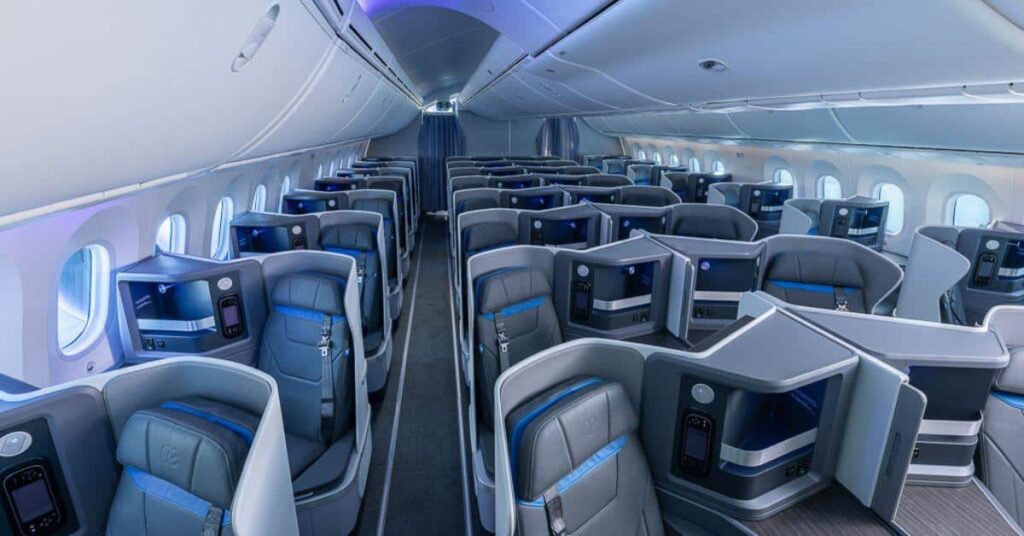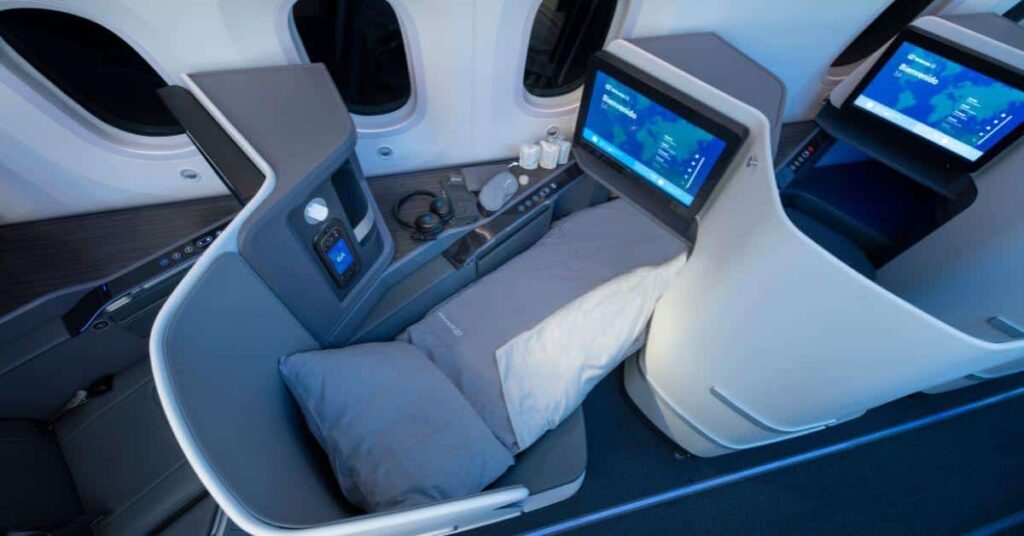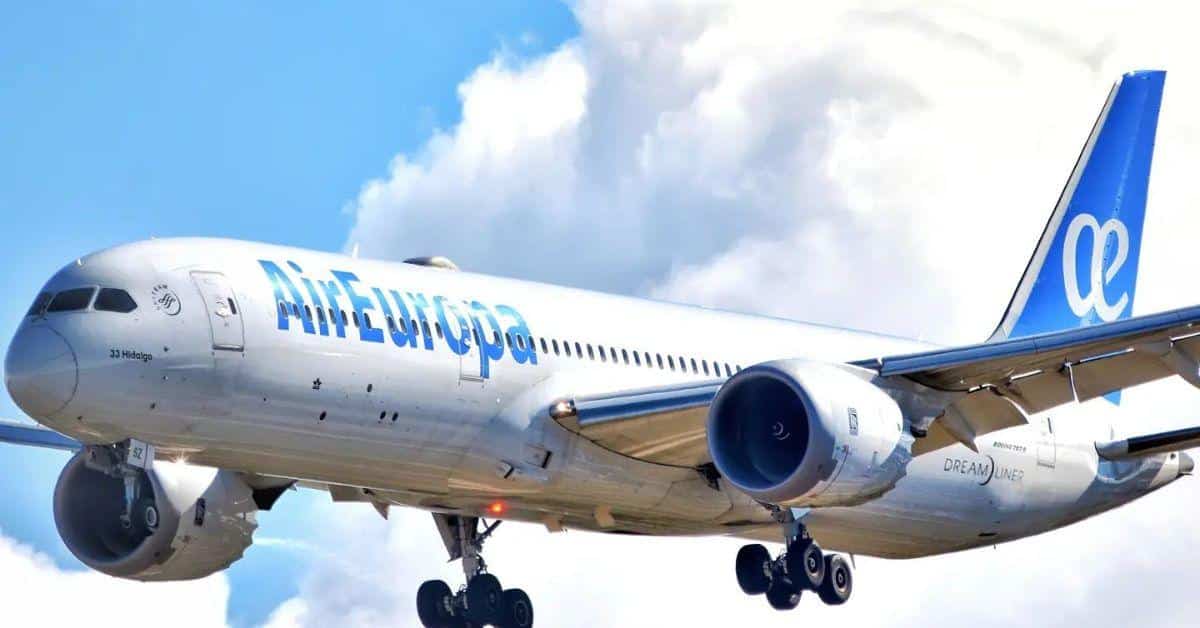Last May, Air Europa activated all its resources towards sustainability. It combined the efforts of staff on the ground, cabin and airport bodies to achieve maximum efficiency on the route between Madrid and the Gran Canary Island made by a Boeing 787 Dreamliner as part of the international challenge “The Sustainable Flight Challenge” organised by the SkyTeam alliance. Biofuels, crew parity, digitisation of operations, elimination of plastics on board and optimisation of the trajectory for lower fuel consumption were among the many measures adopted to demonstrate that it is possible to move towards a greener and more environmentally responsible industry.
This experience is just one of the most recent examples of the airline’s efforts to implement in its daily operations measures aimed at making commercial aviation an industry committed to the environment and the transition to a truly circular economy.
COMMITMENT TO SUSTAINABILITY
Three commitments have articulated the strategy in this area. The first was set years ago by the International Civil Aviation Organisation (ICAO), which set the objective of improving airline efficiency by 2% per year. Air Europa is already meeting this target of sustainability. The second is a 10% reduction in fuel consumption on Air Europa’s long-haul flights, and the third is a 10% reduction in CO2 emissions on the company’s narrow-body fleet by 2023.
In all cases, the unification of the models with which the airline operates has been key. The backbone of its offering is the Boeing 787 Dreamliner, one of the most modern and efficient models on the market. In addition to reducing fuel consumption and pollutant emissions by 20%, it is capable of reducing noise pollution by 60%.
The culture of sustainability goes beyond the fleet and requires both a continuous effort on our own and joining third-party initiatives. For the past decade, Air Europa has held EMAS accreditation, which recognises European excellence in environmental management. Air Europa is one of only three other airlines in the world holding this certification. It is also part of projects such as the Aviation Alliance and the #ForTheClimate community. The former is working on the Fit for 55 programme, which aims to reduce emissions by at least 55% by 2030 and achieve net zero emissions by 2050. The latter advocates the implementation of sustainability measures in all company procedures.

MAJOR CHALLENGES FOR A CONSCIOUS SOCIETY
Climate change, the fight against waste production, the reduction in the use of natural resources and socially responsible development represent altogether a large part of Air Europa’s sustainability policy. In line with the main concerns of the company’s customers and society in general, the challenges posed are addressed comprehensively throughout the entire service value chain.
To this end, on the ground, the company trains its staff to raise awareness of the challenges indicated in terms of sustainability and the application of best practices.
In addition, it applies a supplier management policy to ensure that they act under the same environmental standards as Air Europa and that they comply with the legal requirements in this area as required by the current legislation.
On board, the changes have been remarkable. Air Europa has been carrying out waste segregation on board since 2006 and the progressive elimination of single-use plastics has also been a constant feature of any upgrade for years. In Business Class, reusable cutlery and glass cups are used, while the rest of the cutlery sets have been replaced by wood or compostable material. In addition, the catering trolleys are also lighter and baggage and merchandise adjustment measures are applied to ensure that the weight of the aircraft is appropriate.
In the case of the fleet, the use of the most advanced models on the market is coupled with the application of efficiency techniques at all levels. Two examples illustrate this. Conventional paint has been replaced by one that requires two fewer coats and repels dirt, which reduces weight and therefore fuel consumption. Engine flushing, a system that reduces impurities and friction in flight, is also being implemented, improving aerodynamics and reducing fuel consumption.

PROCESS IMPROVEMENT
One of the least visible areas for passengers is the improvement of working procedures. To this end, teamwork is essential. Different working groups have been set up, the results of which are already being applied to the airline’s operations. The fuel management committee, for example, seeks to optimise consumption and reduce its impact not only on costs but also on emissions. The Smart Fuel platform monitors consumption and makes the most rational use of fuel possible.
Similarly, the airline relies on technology to digitise complex tasks such as route calculation and flight plan definition. It also uses the Electronic Flight Bag system, which reduces the amount of paper used by more than 25% and indirectly saves 228 tons of fuel per year.
The result is a reduction in CO2 emissions intensity per passenger and kilometre transported below the industry average, as well as a significant decrease in consumption per ton of freight and kilometre transported, which in 2021 alone was already 7% lower than in the previous year.
Flying towards sustainability is not an isolated effort of a working group or a specific set of measures. Given the actions taken by Air Europa, it is a global transformation of the business and a unique way of understanding air transport.










